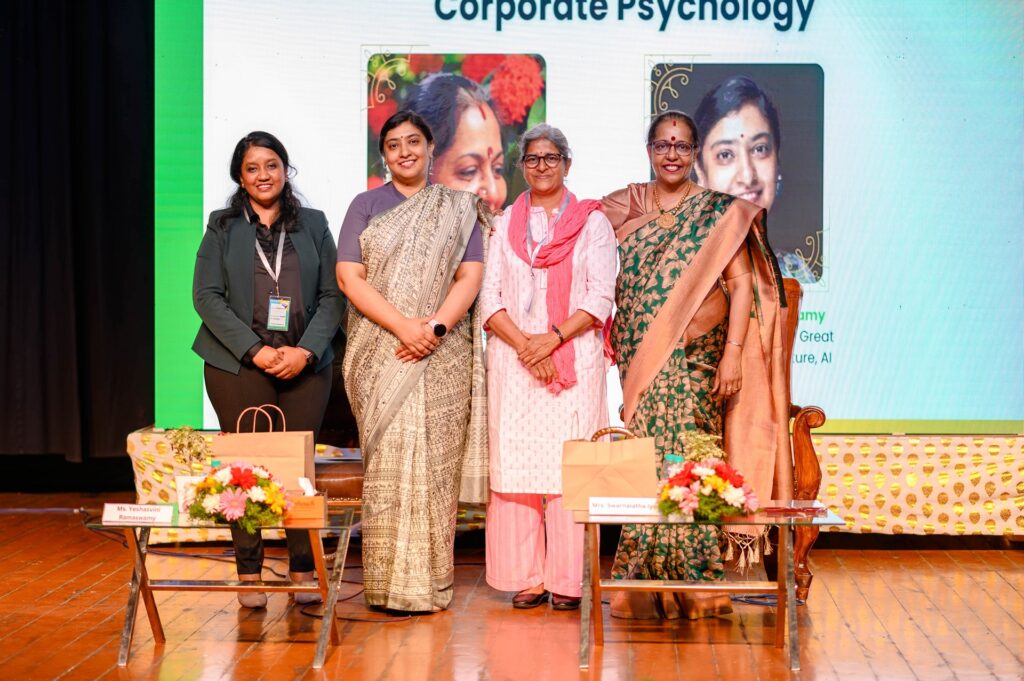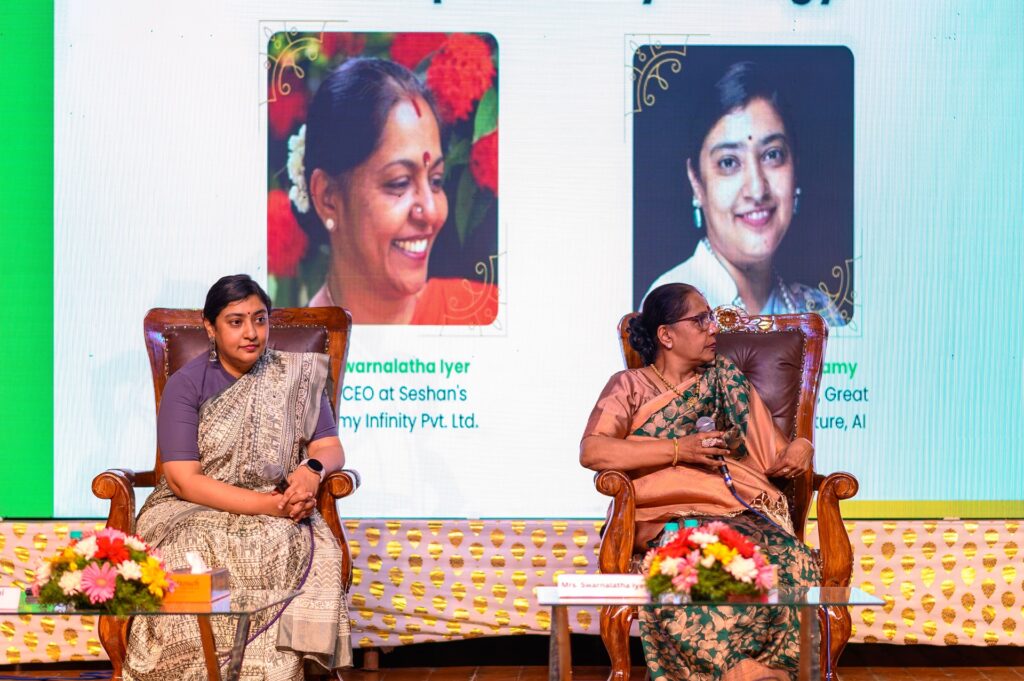
In the fast-paced world of corporate dynamics, understanding the intricate interplay of psychology and workplace culture is paramount. Recently, two esteemed professionals, Ms. Yeshasvini Ramaswamy and Mrs. Swarnalatha Iyer, shared their invaluable insights on this topic in a panel discussion at the Inspiron Mental Health Advocacy National Conference 2024 organized by Inspiron Psychological Well-Being Centre. Let’s delve into the key takeaways from their discourse.
Ms. Yeshasvini Ramaswamy’s Insights:

- Data-Driven Understanding: Ms. Yeshasvini underscored the importance of data-driven insights in comprehending workplace dynamics. Through extensive studies and research, organizations can gain invaluable insights into employee behavior, attitudes, and challenges, laying the foundation for informed decision-making and strategic planning.
- Awareness of Mental Health Issues: The COVID-19 pandemic has brought mental health concerns to the forefront. Ms. Yeshasvini emphasized the increasing awareness of mental health issues in the workplace, catalyzed by the pandemic. Organizations are recognizing the imperative to prioritize mental health and well-being in their agendas.
- Intergenerational Conflicts: With a predominant presence of millennials and Gen Z in today’s workforce, intergenerational conflicts have become prevalent. Ms. Yeshasvini highlighted the challenges stemming from differences in values, communication styles, and work preferences among different generations, necessitating strategies for effective intergenerational collaboration and understanding.
- Blurring of Work-Life Boundaries: Technological advancements have blurred work-life boundaries, posing challenges such as heightened stress and difficulty in maintaining a healthy work-life balance. Ms. Yeshasvini pointed out the significance of addressing these challenges, especially in urban areas with limited space, where remote work exacerbates the situation.
- Positive Corporate Shifts: Despite the challenges, Ms. Yeshasvini highlighted positive shifts in corporate practices, such as providing counseling services and transitioning towards community-based perks and benefits. These initiatives reflect a growing recognition of the importance of holistic employee well-being and the need for organizations to adapt to changing workplace dynamics.
Mrs. Swarnalatha Iyer’s Insights:

- Evolution of Employee Assistance Programs (EAPs): Mrs. Swarnalatha Iyer elaborated on the evolution of Employee Assistance Programs (EAPs) in organizations. These programs provide employees with confidential counseling and support services to address personal and work-related issues, evolving over time to meet the changing needs of employees and organizations.
- Increased Availability of EAPs Post-Pandemic: The COVID-19 pandemic has led to an increased availability of EAPs in organizations, as they recognize the importance of supporting employee mental health during times of crisis and uncertainty.
- Persistent Stigma Around Mental Health: Despite the availability of EAPs, Mrs. Swarnalatha Iyer highlighted the persistent stigma surrounding mental health in corporate environments. Employees may hesitate to seek help due to fears of judgment or concerns about appearing weak.
- Reluctance to Utilize EAP Services: Employees may be reluctant to utilize EAP services due to these stigmas and concerns, hindering their access to the support they need to address mental health issues effectively.
- Pressure on HR and Senior Management: Mrs. Swarnalatha Iyer pointed out the pressure on HR and senior management to prioritize performance metrics over employee well-being. Proactive leadership and strategies are essential to prioritize employee well-being alongside organizational goals.
- Importance of Proactive Leadership: Mrs. Swarnalatha Iyer emphasized the importance of proactive steps from leadership to create awareness, encourage participation, and destigmatize seeking assistance for mental health concerns in the workplace. By fostering a supportive and inclusive work environment, leaders can empower employees to prioritize their mental health and well-being.
Conclusion:
In conclusion, the insights shared by Ms. Yeshasvini and Mrs. Swarnalatha Iyer shed light on the evolving landscape of corporate psychology and mental health in the workplace. Addressing challenges such as stigma, work-life balance, and performance pressures requires proactive leadership and a holistic approach to employee well-being. They extend their heartfelt gratitude to Ms. Priyanka, Founder and Psychologist at Inspiron Psychological Well-Being Centre, and her dedicated team for organizing the Inspiron Mental Health Advocacy National Conference 2024. Their efforts have played a crucial role in raising awareness about mental health issues and advocating for mental health law, ultimately contributing to the well-being of individuals and communities.




